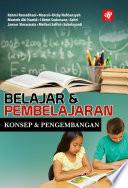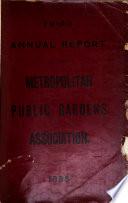
Belajar dan Pembelajaran: Konsep dan Pengembangan
Belajar merupakan proses memperoleh ilmu. Belajar merupakan kegiatan yang menghasilkan adanya perubahan dari yang tidak tahu menjadi tahu, dari yang tidak mampu menjadi mampu. Sedangkan pembelajaran mengacu pada dua konsep, yakni belajar dan mengajar. Pembelajaran merupakan proses yang kompleks dengan menghadirkan kegiatan belajar yang dilaksanakan oleh siswa serta kegiatan mengajar yang dilaksanakan oleh guru. Belajar dan pembelajaran merupakan dua kegiatan yang beriringan dan saling terkoneksi satu dengan lainnya. Artinya, proses pembelajaran tidak akan berhasil jika kegiatan belajar tidak hadir. Sebaliknya, jika komponen mengajar pada proses pembelajaran tidak dijalankan dengan baik, maka kegiatan pembelajaran juga akan timpang dan tidak mencapai hasil yang maksimal. Sebagai guru serta calon guru, memahami makna belajar dan pembelajaran sangat penting. Tujuannya hanya satu, mencapai kompetensi pembelajaran yang diharapkan. Guru dan calon guru wajib memahami seperti apa teori, konsep dan hakikat belajar itu sendiri, sebelum menerapkannya di kelas pembelajaran yang sebenarnya. Mulai dari perspektif psikologi hingga perspektif sosial, seyogianya menjadi acuan bagi guru dan calon guru sebelum memulai aktivitas belajar mengajar (pembelajaran). Pemberian materi ajar hingga mendesain serta mengembangkan model dan metode pembelajaran yang tepat menjadi salah satu kompetensi yang harus dimiliki oleh guru serta calon guru. Pengetahuan dan keterampilan terkait tes evaluasi apa yang tepat untuk siswa juga memberikan efek dalam peningkatan kualitas pembelajaran. Untuk itu, buku Belajar & Pembelajaran hadir sebagai bagian dari transfer keilmuan kepada guru serta calon guru. Buku Belajar & Pembalajaran ini terdiri dari 10 bab, di antaranya: Konsep Belajar & Hakiki Belajar, Hakikat Pembelajaran, Model Pembelajaran, Strategi Pembelajaran, Pendekatan Pembelajaran, Metode Pembelajaran, Pengembangan Model Desain Pembelajaran, Pengembangan Media & Sumber Belajar, serta Pengembangan Tes Evaluasi. Dengan adanya buku ini, diharapkan para pendidikan serta calon pendidik dapat mengetahui bagaimana penerapan konsep belajar dan pembelajaran secara tepat baik dipandang dari sisi siswa maupun dipandang dari sisi guru.
- ISBN 13 : 6236512582
- ISBN 10 : 9786236512586
- Judul : Belajar dan Pembelajaran: Konsep dan Pengembangan
- Pengarang : Rahmi Ramadhani, Masrul Masrul, Dicky Nofriansyah, Mustofa Abi Hamid, I Ketut Sudarsana, Sahri Sahri, Janner Simarmata, Meilani Safitri, Suhelayanti Suhelayanti, Masrul Masrul, Dicky Nofriansyah, Mustofa Abi Hamid, I Ketut Sudarsana, Sahri Sahri, Janner Simarmata, Meilani Safitri, Suhelayanti Suhelayanti, Masrul Masrul, Dicky Nofriansyah, Mustofa Abi Hamid, I Ketut Sudarsana, Sahri Sahri, Janner Simarmata, Meilani Safitri, Suhelayanti Suhelayanti, Masrul Masrul, Dicky Nofriansyah, Mustofa Abi Hamid, I Ketut Sudarsana, Sahri Sahri, Janner Simarmata, Meilani Safitri, Suhelayanti Suhelayanti, Masrul Masrul, Dicky Nofriansyah, Mustofa Abi Hamid, I Ketut Sudarsana, Sahri Sahri, Janner Simarmata, Meilani Safitri, Suhelayanti Suhelayanti, Masrul Masrul, Dicky Nofriansyah, Mustofa Abi Hamid, I Ketut Sudarsana, Sahri Sahri, Janner Simarmata, Meilani Safitri, Suhelayanti Suhelayanti, Masrul Masrul, Dicky Nofriansyah, Mustofa Abi Hamid, I Ketut Sudarsana, Sahri Sahri, Janner Simarmata, Meilani Safitri, Suhelayanti Suhelayanti, Masrul Masrul, Dicky Nofriansyah, Mustofa Abi Hamid, I Ketut Sudarsana, Sahri Sahri, Janner Simarmata, Meilani Safitri, Suhelayanti Suhelayanti, Masrul Masrul, Dicky Nofriansyah, Mustofa Abi Hamid, I Ketut Sudarsana, Sahri Sahri, Janner Simarmata, Meilani Safitri, Suhelayanti Suhelayanti, Masrul Masrul, Dicky Nofriansyah, Mustofa Abi Hamid, I Ketut Sudarsana, Sahri Sahri, Janner Simarmata, Meilani Safitri, Suhelayanti Suhelayanti, Masrul Masrul, Dicky Nofriansyah, Mustofa Abi Hamid, I Ketut Sudarsana, Sahri Sahri, Janner Simarmata, Meilani Safitri, Suhelayanti Suhelayanti, Masrul Masrul, Dicky Nofriansyah, Mustofa Abi Hamid, I Ketut Sudarsana, Sahri Sahri, Janner Simarmata, Meilani Safitri, Suhelayanti Suhelayanti, Masrul Masrul, Dicky Nofriansyah, Mustofa Abi Hamid, I Ketut Sudarsana, Sahri Sahri, Janner Simarmata, Meilani Safitri, Suhelayanti Suhelayanti, Masrul Masrul, Dicky Nofriansyah, Mustofa Abi Hamid, I Ketut Sudarsana, Sahri Sahri, Janner Simarmata, Meilani Safitri, Suhelayanti Suhelayanti, Masrul Masrul, Dicky Nofriansyah, Mustofa Abi Hamid, I Ketut Sudarsana, Sahri Sahri, Janner Simarmata, Meilani Safitri, Suhelayanti Suhelayanti, Masrul Masrul, Dicky Nofriansyah, Mustofa Abi Hamid, I Ketut Sudarsana, Sahri Sahri, Janner Simarmata, Meilani Safitri, Suhelayanti Suhelayanti, Masrul Masrul, Dicky Nofriansyah, Mustofa Abi Hamid, I Ketut Sudarsana, Sahri Sahri, Janner Simarmata, Meilani Safitri, Suhelayanti Suhelayanti, Masrul Masrul, Dicky Nofriansyah, Mustofa Abi Hamid, I Ketut Sudarsana, Sahri Sahri, Janner Simarmata, Meilani Safitri, Suhelayanti Suhelayanti, Masrul Masrul, Dicky Nofriansyah, Mustofa Abi Hamid, I Ketut Sudarsana, Sahri Sahri, Janner Simarmata, Meilani Safitri, Suhelayanti Suhelayanti, Masrul Masrul, Dicky Nofriansyah, Mustofa Abi Hamid, I Ketut Sudarsana, Sahri Sahri, Janner Simarmata, Meilani Safitri, Suhelayanti Suhelayanti, Masrul Masrul, Dicky Nofriansyah, Mustofa Abi Hamid, I Ketut Sudarsana, Sahri Sahri, Janner Simarmata, Meilani Safitri, Suhelayanti Suhelayanti, Masrul Masrul, Dicky Nofriansyah, Mustofa Abi Hamid, I Ketut Sudarsana, Sahri Sahri, Janner Simarmata, Meilani Safitri, Suhelayanti Suhelayanti, Masrul Masrul, Dicky Nofriansyah, Mustofa Abi Hamid, I Ketut Sudarsana, Sahri Sahri, Janner Simarmata, Meilani Safitri, Suhelayanti Suhelayanti, Masrul Masrul, Dicky Nofriansyah, Mustofa Abi Hamid, I Ketut Sudarsana, Sahri Sahri, Janner Simarmata, Meilani Safitri, Suhelayanti Suhelayanti, Masrul Masrul, Dicky Nofriansyah, Mustofa Abi Hamid, I Ketut Sudarsana, Sahri Sahri, Janner Simarmata, Meilani Safitri, Suhelayanti Suhelayanti, Masrul Masrul, Dicky Nofriansyah, Mustofa Abi Hamid, I Ketut Sudarsana, Sahri Sahri, Janner Simarmata, Meilani Safitri, Suhelayanti Suhelayanti, Masrul Masrul, Dicky Nofriansyah, Mustofa Abi Hamid, I Ketut Sudarsana, Sahri Sahri, Janner Simarmata, Meilani Safitri, Suhelayanti Suhelayanti,
- Kategori : Antiques & Collectibles
- Penerbit : Yayasan Kita Menulis
- Bahasa : id
- Tahun : 2020
- Halaman : 182
- Google Book : http://books.google.co.id/books?id=QprzDwAAQBAJ&dq=intitle:Pembelajaran+Tematik+AUD&hl=&source=gbs_api
-
Ketersediaan :
... Model Project Based Learning (Model Pembelajaran Berbasis Proyek) dalam Materi Pola Bilangan Kelas VII', PPPPTK Matematika, pp. 1–19. Trianto (2013) Desain pengembangan pembelajran tematik bagi anak usia dini TK/RA dan anak kelas ...









